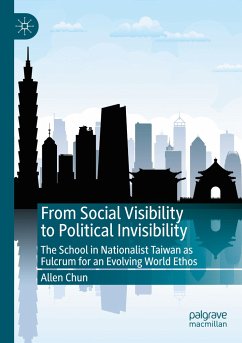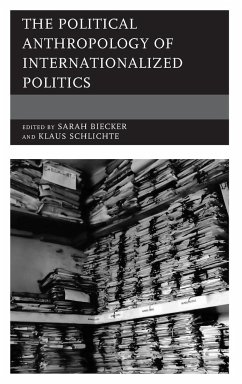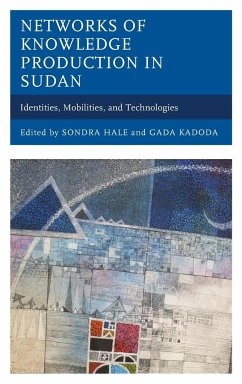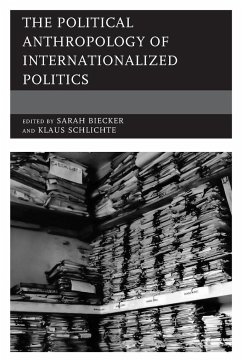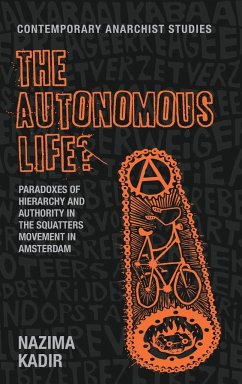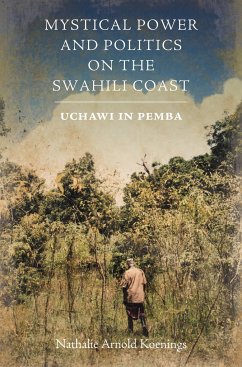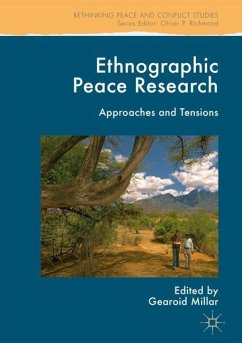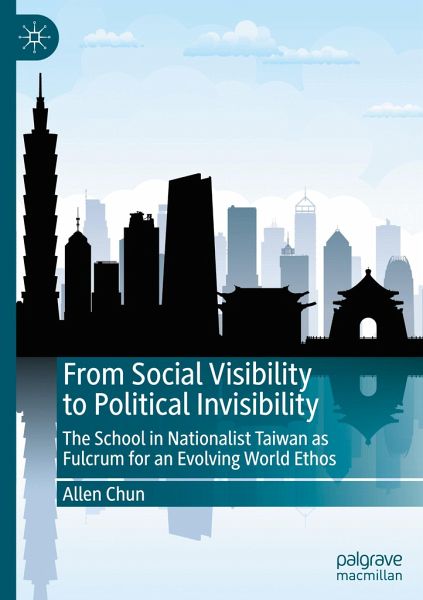
From Social Visibility to Political Invisibility
The School in Nationalist Taiwan as Fulcrum for an Evolving World Ethos
Versandkostenfrei!
Versandfertig in 6-10 Tagen
106,99 €
inkl. MwSt.
Weitere Ausgaben:

PAYBACK Punkte
53 °P sammeln!
This book began as a year-long ethnography of a school in Taiwan in 1991 then evolved more into a historical sociology of national formation and its cultural mindset. Cultural nationalism is a widely debated but poorly understood process. Contrary to prevailing perceptions, the Cold War may have given way to a more progressive open society, but the politicization of ethnicity hardened a more deeply entrenched cultural frame of mind. Instead of liberating an indigenous reality, Taiwanese consciousness has ironically polarized the political dead ends of reunification and independence. In the fin...
This book began as a year-long ethnography of a school in Taiwan in 1991 then evolved more into a historical sociology of national formation and its cultural mindset. Cultural nationalism is a widely debated but poorly understood process. Contrary to prevailing perceptions, the Cold War may have given way to a more progressive open society, but the politicization of ethnicity hardened a more deeply entrenched cultural frame of mind. Instead of liberating an indigenous reality, Taiwanese consciousness has ironically polarized the political dead ends of reunification and independence. In the final analysis, the ethnography can serve as a paradigmatic case study for critical cultural studies. There are clear ramifications also for a comparative study of the cultural politics of other Chinese speaking or Asian societies and their histories.



